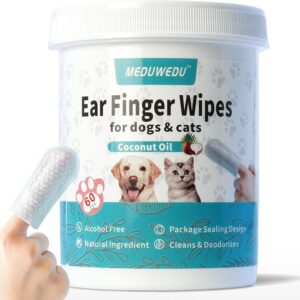
Rodents are fascinating creatures with unique characteristics that make them popular pets worldwide. Among their most notable traits is their incessant chewing behavior. For those who own rodents or are considering adopting one, understanding why rodents chew and how to manage this behavior can enhance the pet-owning experience. This article delves into the reasons behind rodent chewing, its implications, and effective solutions to ensure both pet and owner coexist harmoniously.
The Biological Imperative of Chewing
Rodents, including mice, rats, hamsters, guinea pigs, and gerbils, belong to the order Rodentia. One defining feature of this order is their continuously growing incisors. Unlike human teeth, which stop growing after a certain age, a rodent’s incisors grow throughout its life. This biological trait necessitates regular gnawing to keep their teeth at manageable lengths and to prevent dental problems.
The Role of Incisors
The incisors of rodents are specialized for gnawing. The enamel on the front of these teeth is harder than the dentin on the back, creating a self-sharpening edge as the rodent chews. Without regular gnawing, their teeth could grow excessively long, leading to misalignment, difficulty eating, and potential injuries to the mouth and gums.
Understanding Chewing Behavior in Rodents
While tooth maintenance is a primary reason for chewing, several other factors contribute to this behavior. Understanding these can help owners better cater to their pets’ needs and mitigate any destructive tendencies.
Instinctual Behavior
Chewing is an instinctive behavior ingrained in rodents for survival. In the wild, rodents chew to access food, build nests, and create burrows. This natural behavior persists even in domesticated environments, where the need for such activities is less pressing.
Environmental Enrichment
Rodents are intelligent and curious animals that require stimulation. Chewing is one way they explore their environment and relieve boredom. A lack of environmental enrichment can lead to excessive or inappropriate chewing as the rodent seeks to entertain itself.
Stress and Anxiety
Stress and anxiety can also manifest as increased chewing in rodents. Factors such as a change in environment, the presence of predators, or insufficient hiding spaces can heighten stress levels, prompting rodents to chew more as a coping mechanism.
Impacts of Chewing on the Household
While chewing is essential for rodents, it can sometimes lead to challenges within the home. Understanding these challenges can help owners find effective solutions.
Destructive Chewing
When rodents chew on inappropriate items, such as furniture, wires, or clothing, it can lead to damage in the household. This behavior not only affects the home aesthetically but can also pose safety hazards, such as electrical fires from gnawed wires.
Health Risks
Chewing on inappropriate materials can pose health risks to rodents. Ingesting toxic substances or indigestible objects can lead to gastrointestinal blockages or poisoning, which require immediate veterinary attention.
Solutions for Managing Rodent Chewing
Given the essential nature of chewing for rodents, the goal is not to stop the behavior but to redirect it towards safe and appropriate outlets. Here are some effective strategies:
Provide Appropriate Chew Toys
Offering a variety of chew toys designed for rodents can satisfy their need to gnaw while protecting household items. Wooden toys, untreated wicker baskets, and natural fiber ropes are excellent options. Ensure that these toys are made from non-toxic materials to prevent any health risks.
Environmental Enrichment
To reduce boredom-related chewing, provide an enriching environment for your rodent. This can include a variety of toys, tunnels, climbing structures, and opportunities for foraging. Regularly rotating these items can keep the environment stimulating and reduce the likelihood of destructive chewing.
Dietary Considerations
A balanced diet is crucial for rodent health and can influence chewing behavior. Providing fibrous foods such as hay for guinea pigs and rabbits can aid in natural tooth wear. Additionally, offering a variety of textures in their diet can help satisfy chewing instincts.
Regular Veterinary Check-Ups
Routine veterinary visits are vital to ensure your rodent’s teeth are healthy and properly aligned. A vet can provide professional tooth trimming if necessary and advise on any dietary or environmental changes needed to support dental health.
Stress Reduction
Identifying and mitigating sources of stress can help reduce anxiety-related chewing. Ensure your rodent has appropriate hiding spaces, a stable environment, and minimal exposure to loud noises or predators. Spending quality time with your pet can also help alleviate stress.
Training and Behavior Modification
Although training rodents can be challenging, it is possible to modify certain behaviors with patience and consistency.
Positive Reinforcement
Use positive reinforcement techniques to encourage your rodent to chew on appropriate items. When your pet uses a designated chew toy, offer a treat or praise. Over time, this can help reinforce desirable chewing behaviors.
Discourage Inappropriate Chewing
If your rodent consistently chews on inappropriate items, gently redirect them to a suitable alternative. Avoid punishment, as this can increase stress and exacerbate the problem. Instead, focus on positive redirection and reinforcement.
Conclusion
Understanding the reasons behind rodent chewing and implementing strategies to manage it can lead to a more harmonious relationship between pet and owner. By providing appropriate outlets for chewing, enriching the environment, and addressing any underlying stressors, owners can ensure their rodents are healthy, happy, and well-adjusted. Remember that chewing is a natural and necessary behavior for rodents, and with the right approach, it can be managed effectively to prevent damage to the home and ensure the well-being of your pet.
Final Thoughts
Rodents are delightful companions that bring joy and curiosity into our lives. By embracing their natural behaviors and understanding their needs, we can create a nurturing environment that fosters their well-being. Whether you are a seasoned rodent owner or new to the world of small pets, understanding and managing chewing behavior is key to a rewarding and fulfilling pet ownership experience.
#ChatGPT assisted in the creation of this article.








